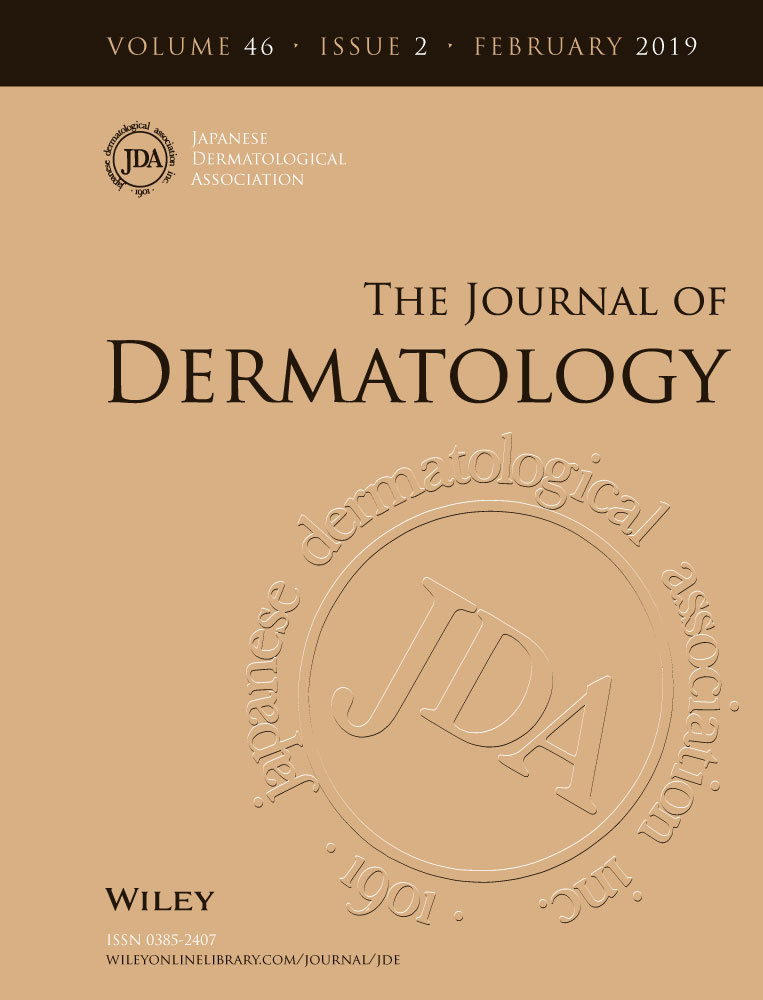Rituximab therapy for refractory autoimmune bullous diseases: A multicenter, open-label, single-arm, phase 1/2 study on 10 Japanese patients
Abstract
This was a multicenter study of rituximab, a chimeric monoclonal immunoglobulin G antibody directed against CD20, for the treatment of refractory autoimmune bullous diseases (pemphigus and pemphigoid). Ten patients (three with pemphigus vulgaris, six with pemphigus foliaceus and one with bullous pemphigoid) were treated with a single cycle of rituximab (four weekly infusions at a dose of 375 mg/m2 of body surface area). The primary end-points were the number of serious adverse events and rate of complete remission at 40 weeks. Five patients (50%) achieved complete remission with minimal therapy (defined as no active lesions with lower doses of systemic corticosteroids compared to that with prednisolone 10 mg/day). Improvements in clinical scores (Pemphigus Disease Area Index) and decreases in autoantibody titers in the sera were observed in the four pemphigus patients who failed to achieve complete remission. This suggests that rituximab was effective in nine of 10 cases. Two serious adverse events (Pneumocystis carinii pneumonia and septic shock due to infectious arthritis) were observed and adequately treated with hospitalization. CD19-positive B lymphocytes in the peripheral blood decreased on day 29 following rituximab treatment, and remained at low levels throughout the observation period (280 days). Our results confirmed the efficacy of rituximab therapy for refractory autoimmune bullous diseases in Japan.




